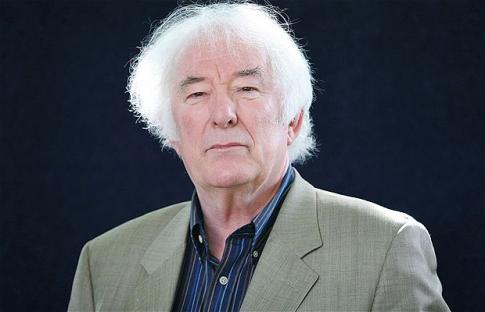Seamus Heaney (1939-2013)

Seamus Heaney, the 1995 Nobel laureate in Literature who was often described as the greatest Irish poet since Yeats, died on Friday in Dublin. He was 74.
By MARGALIT FOX and JAMES C. McKINLEY Jr.
Seamus Heaney, the 1995 Nobel laureate in Literature who was often described as the greatest Irish poet since Yeats, died on Friday in Dublin. He was 74.
His publisher, Faber & Faber, announced the death. The apparent cause was complications of a stroke Mr. Heaney suffered in 2006.
The Irish Prime Minister, Enda Kenny, said the nation was in a deep mourning that only the poet himself could describe. “For us, Seamus Heaney was the keeper of our language, our codes, our essence as a people,” he told The Irish Times.
A native of Northern Ireland, Mr. Heaney, a Roman Catholic, was renowned for work that powerfully evoked the beauty and blood that together have come to define the modern Irish condition. The author of more than a dozen collections of poetry, as well as critical essays and works for the stage, he repeatedly explored the strife and moral quandaries that have plagued his homeland, while managing simultaneously to steer clear of polemic.
Mr. Heaney’s poetry had a primeval, epiphanic quality and was often suffused with references to ancient myths — Celtic, of course, but also those of ancient Greece. His style, linguistically pyrotechnic, was at the same time conspicuously lacking in the obscurity that can attend poetic pyrotechnics.
At its best, his work had both a meditative lyricism and an airy velocity. His lines might carry a boggy melancholy, but they also, as often as not, communicated the wild onrushing joy of being alive.
“Digging,” the first poem in his first collection, “The Death of a Naturalist,” described his father digging potatoes and his grandfather digging turf. The last lines seemed to set down a personal manifesto:
The cold smell of potato mould, the squelch and slap
Of soggy peat, the curt cuts of an edge
Through living roots awaken in my head.
But I’ve no spade to follow men like them.
Between my finger and my thumb
The squat pen rests.
I’ll dig with it.
And dig he did, producing a remarkable range of work: love poems, epic poems, poems about conflict and strife, odes to nature, poems addressed to friends, poems for the dead, poems that simply reveled in the sound of the English language.
In his hands, that language was plain and clear, often dazzling, with images of bogs and rocks and streams, as well as epiphanies of the soul. For Mr. Heaney, nature provided settings for moral problems, and through them he seemed to reach agnostics and believing Catholics alike.
After he gained fame with “Death of a Naturalist,” Mr. Heaney never eased his pace. Publishing more than a dozen major collections between 1966 and 2010 — his later volumes include “The Spirit Level,” “District and Circle” and “Bog Poems” — he became acknowledged as a major literary voice of the 20th century. Robert Lowell, for one, called him the “most important Irish poet since Yeats.”
He also wrote two plays, four works on the process of poetry and a well-regarded translation of “Beowulf.” He won dozens of accolades, among them the French Commandeur de l’Ordre des Arts et Lettres in 1996 and the T.S. Eliot Prize in 2006.
Mr. Heaney was that rarity among modern poets: not only critically praised but also widely read. Millions of readers bought his books, finding his verse eminently accessible, with its familiar images and universal thoughts.
In a 1984 poem, “Old Smoothing Iron,” for example, about a woman ironing a sheet, he expressed a kind of hardened optimism about life:
To work, her dumb lunge says,
is to move a certain mass
through a certain distance,
is to pull your weight and feel
exact and equal to it.
Feel dragged upon. And buoyant.
By some estimates, no other living poet was read so widely in recent decades.
“Book sales may not mean much in the areas of fiction or biography, but for a poet to sell in the thousands is remarkable proof to his ability to speak in his poems to what are inadequately called ‘ordinary people,’ ” The Irish Times wrote in an editorial after Mr. Heaney was awarded the Nobel Prize. “Yet the popularity of his work should not be allowed to obscure the fact that this is deep, at times profound poetry, forged through hard thinking and an attentive, always tender openness to the world, especially the natural world.”
Seamus Justin Heaney was born on April 13, 1939, on a farm called Mossbawn in County Derry in the western part of the British province of Northern Ireland. He was the eldest of nine children.




 del.icio.us
del.icio.us Digg
Digg

Post your comment